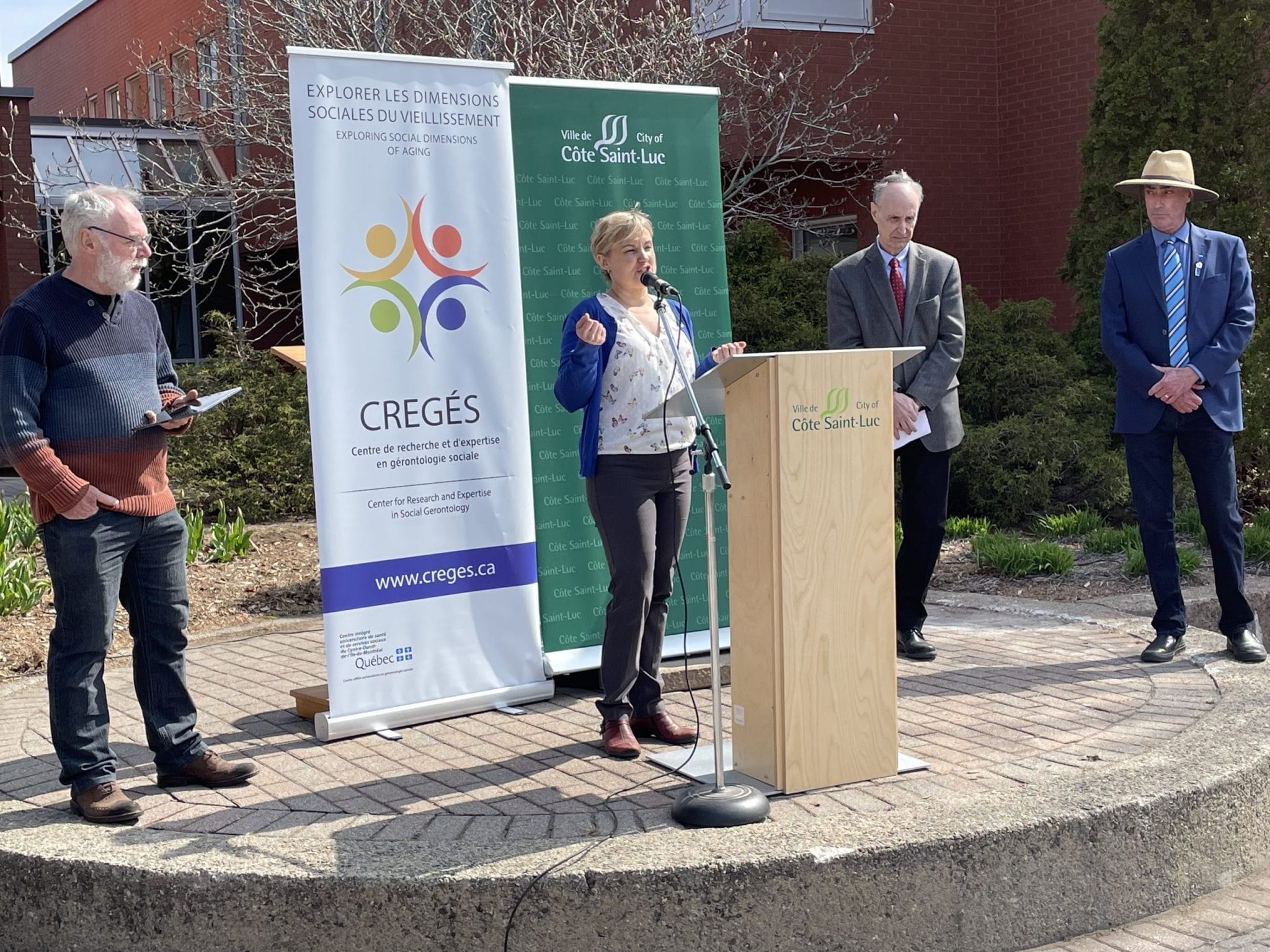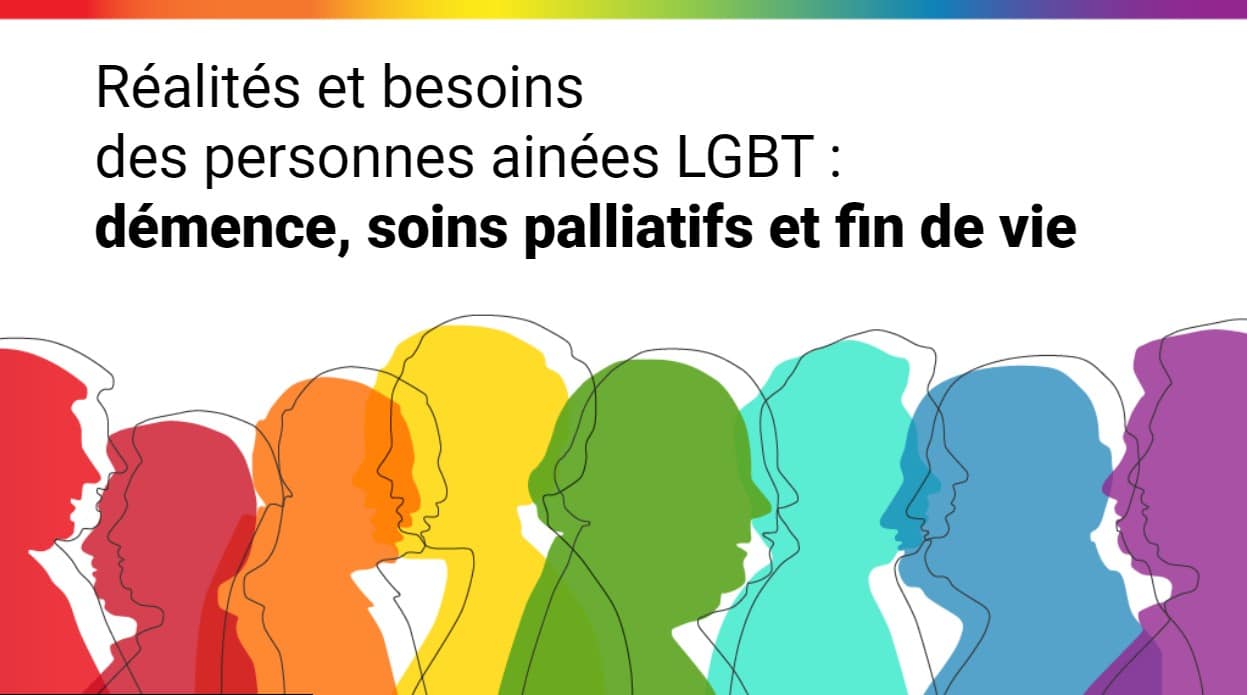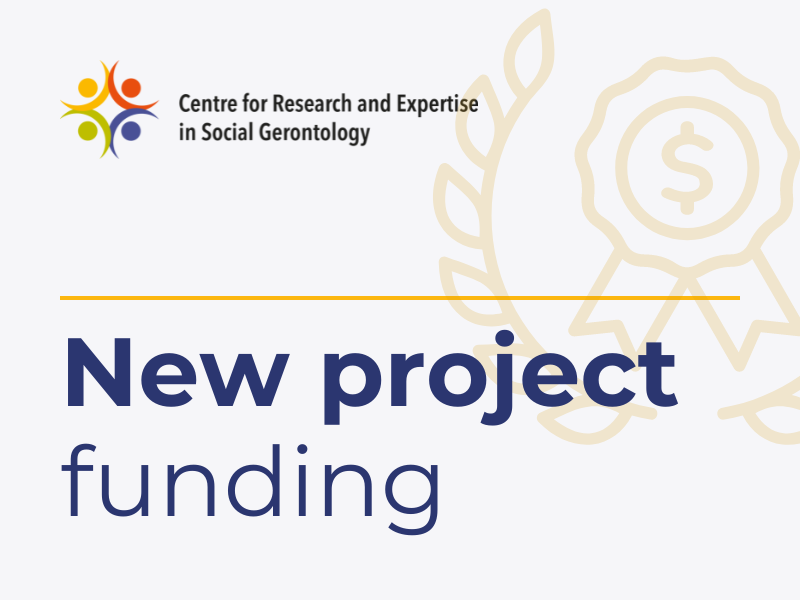Launch of the research project: Smart Environments Supporting the Ecosystem of Fragile and Isolated Seniors: The City of Côte Saint-Luc Living Lab
4 May 2022Launch of new modules: Réalités et besoins des personnes ainées LGBT : démence, soins palliatifs et fin de vie
1 August 2022
The 2022 season of Conférences CREGÉS has come to a close!
Scroll down to find the recordings and resources from each of our five talks presenting projects by our researchers this year. Thank you for your participation, and we look forward to seeing you in the next season. Enjoy!
You're one of over 1100 participants this year
Enjeux et responsabilités dans l’accès aux soins palliatifs et de fin de vie: mieux comprendre, mieux accompagner en contexte de diversités culturelle et linguistique (in French with English subtitles available)
Presented in collaboration with the Institut universitaire SHERPA
Speakers:
- Patrick Durivage, M.Sc., Coordinator, Domain of Expertise in Palliative Care, CREGÉS; Researcher, CREGÉS
- Isabel Fernandez, RN, Master's student, Faculté des sciences infirmières, Université de Montréal
- Bilkis Vissandjee, PhD., Professor, Faculté des sciences infirmières, Université de Montréal. Chercheure, Institut universitaire SHERPA, CReSP
In this presentation, it is proposed to reflect and discuss good practices of interventions related to the use of palliative and end-of-life care in the context of cultural and linguistic diversity. More specifically, the discussion will focus on the issues and responsibilities underlying the contribution of the trajectories and realities of the diversity of the Quebec population as social determinants of access and thus ensure equitable and quality care.+ See more
Décès et deuils en RPA et CHSLD en contexte de pandémie de COVID-19 (in French)
Speaker:
- Valérie Bourgeois-Guérin, PhD, Associate Professor, Département de psychologie, Université du Québec à Montréal; Researcher, CREGÉS
The COVID-19 pandemic was particularly costly for the elderly. Ninety-one percent of the deaths related to this disease occurred among people aged 70 and over in Quebec (INSPQ, 2021a) and 73% of these victims died while living in residential and long-term care centers (CHSLDs) and seniors’ residences (RPAs) (INSPQ, 2021b). Many staff members and managers have experienced the loss of a resident. In this context, how have they experienced the end of life and bereavement? Qualitative research was conducted with managers and staff members of long-term care facilities and senior residences during the COVID-19 pandemic. The testimonies collected reveal that the end of life and the death of residents during the pandemic were difficult for many participants. Some used the metaphor of war to illustrate the violence of the disease, the suddenness and accumulation of losses, the disorganization and the threat that prevailed at the time. The results also reveal an alteration of the time lived, as the pandemic disrupted various end-of-life practices and following the death of a resident. The tasks to be accomplished multiplied and the pace of work accelerated, resulting in the perception of a dehumanization of care. Finally, the relationship to work has been shaken. Different perceptions of the workplace emerged from the testimonies and the changed nature of the work brought out various emotions. Suggestions for practices to support staff and older adults at the end of life and following death in senior residences and long-term care facilities will be explored.+ See more
L’inclusion des personnes âgées vivant avec une problématique de santé mentale : comment y arrive-t-on dans les centres communautaires de loisirs? (in French)
Speakers:
- Ginette Aubin, PhD, Full Professor, Département d'ergothérapie, Université du Québec à Trois-Rivières. Researcher, CREGÉS
- Christine Lacroix, Project manager, Fédération québécoise des centres communautaires en loisir
Older adults living with mental health problems are often marginalized or excluded from recreational organizations. Yet, one of the WHO’s assertions is that access to social participation through meaningful occupations, including recreation in the community, is fundamental to health and well-being. In addition, the successful inclusion of older adults living with mental health problems in recreation organizations is not well documented. Action research is currently being conducted to address this situation. Through focus groups with older adults (with and without mental health issues), practitioners from recreation centers, mental health organizations, and peer support workers, we have identified some questions that need to be explored further: What is the best approach to addressing the inclusion of this population? How should inclusion be practiced outside of mental health-oriented organizations?+ See more
Preserving Cognitive Functions! Prevention and Care in German Public and Professional Discourses on Dementia
Speaker:
- Niklas Petersen, MA, Göttingen University, Germany
The emphasis on dementia research has moved away from treatment and now concentrates on early detection. Dementia and cognitive decline are no longer seen as inevitable but are now seen as effects of individual lifestyle choices, implying that they can be delayed and even prevented.
In his dissertation, Mr. Petersen examines the impact of this new view of dementia and the notions of cognitive decline, aging, and prevention that characterize the medical and nursing debates on dementia in Germany. It also analyses how scientific knowledge is transferred into media discourses. What are the representations of the disease? What images of aging and what rationalities mark the different discourses?
Media coverage of dementia is characterized by a strong emphasis on individual responsibility and lifestyle factors. This CREGÉS conference will focus on how current discourses on dementia are associated with responsibilization, activation, and the medicalization of (cognitive) aging.+ See more
Développer et maintenir nos compétences interprofessionnelles pour soutenir les aînés et les proches aidants: un défi partagé par les milieux d’enseignement et les milieux cliniques (in French)
Presented in collaboration with CvP Continuum Aînés
Speakers:
- Véronique Dubé, RN, PhD Professor, Faculté des sciences infirmières, Université de Montréal. Head of the Chaire de recherche Marguerite-d’Youville d’interventions humanistes en soins infirmiers
- J. Ignace Olazabal, PhD, Collaborating Researcher, CREGÉS. Program Director, Faculté de l’éducation permanente, Université de Montréal
This webinar will be an opportunity to: 1) become familiar with the Référentiel de compétences interprofessionnelles en soins et services sociaux aux aînés et à leurs proches aidants developed by the RUISSS of the Université de Montréal and 2) present a pilot project underway to lay the foundation for a first deposit of digital pedagogical materials to train students and health and social services professionals on these competencies. Véronique Dubé and J. Ignace Olazabal are co-leaders of the training subcommittee of the comité vieillissement of the RUISSS at the Université de Montréal and authors of the Référentiel de compétences interprofessionnelles en soins et services sociaux aux aînés et à leurs proches aidants.+ See more









